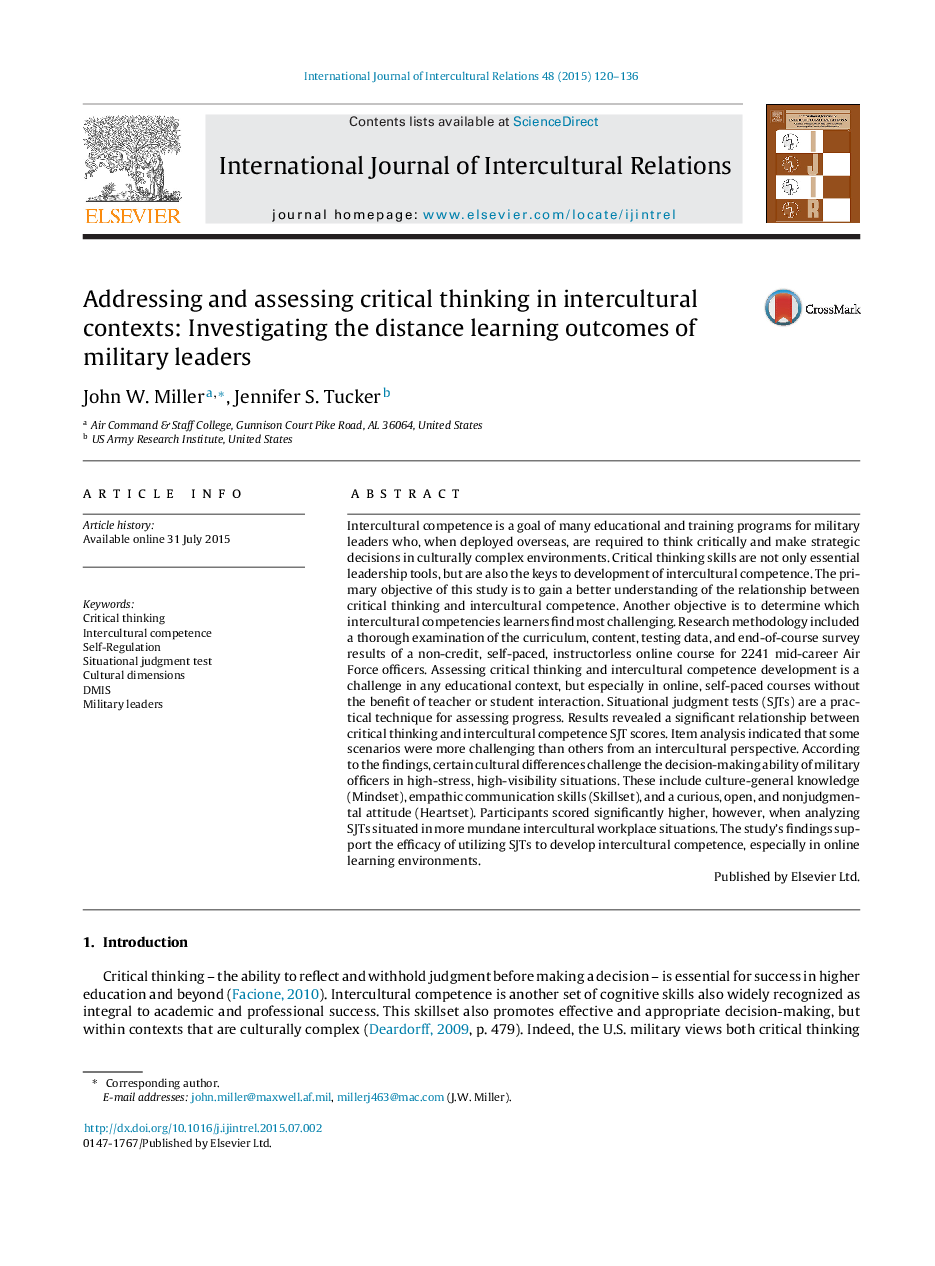| کد مقاله | کد نشریه | سال انتشار | مقاله انگلیسی | نسخه تمام متن |
|---|---|---|---|---|
| 946963 | 1475742 | 2015 | 17 صفحه PDF | دانلود رایگان |
Intercultural competence is a goal of many educational and training programs for military leaders who, when deployed overseas, are required to think critically and make strategic decisions in culturally complex environments. Critical thinking skills are not only essential leadership tools, but are also the keys to development of intercultural competence. The primary objective of this study is to gain a better understanding of the relationship between critical thinking and intercultural competence. Another objective is to determine which intercultural competencies learners find most challenging. Research methodology included a thorough examination of the curriculum, content, testing data, and end-of-course survey results of a non-credit, self-paced, instructorless online course for 2241 mid-career Air Force officers. Assessing critical thinking and intercultural competence development is a challenge in any educational context, but especially in online, self-paced courses without the benefit of teacher or student interaction. Situational judgment tests (SJTs) are a practical technique for assessing progress. Results revealed a significant relationship between critical thinking and intercultural competence SJT scores. Item analysis indicated that some scenarios were more challenging than others from an intercultural perspective. According to the findings, certain cultural differences challenge the decision-making ability of military officers in high-stress, high-visibility situations. These include culture-general knowledge (Mindset), empathic communication skills (Skillset), and a curious, open, and nonjudgmental attitude (Heartset). Participants scored significantly higher, however, when analyzing SJTs situated in more mundane intercultural workplace situations. The study’s findings support the efficacy of utilizing SJTs to develop intercultural competence, especially in online learning environments.
Journal: International Journal of Intercultural Relations - Volume 48, September 2015, Pages 120–136
